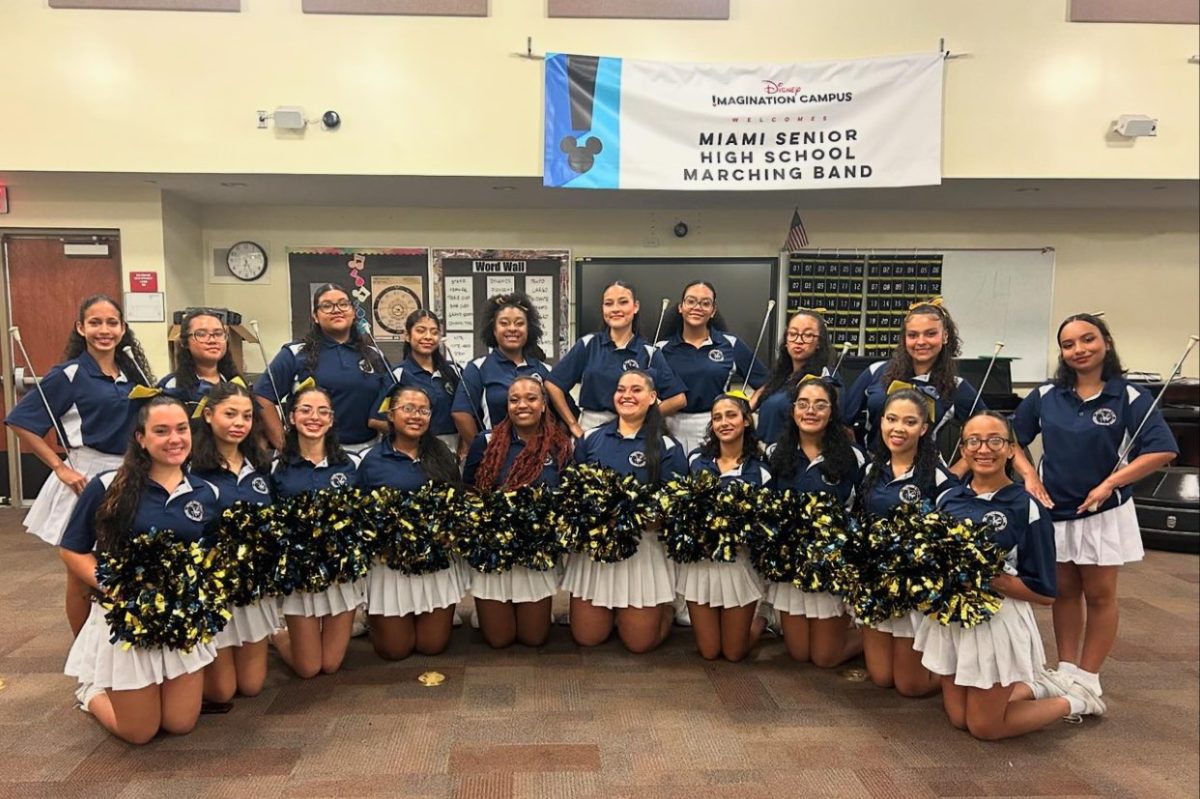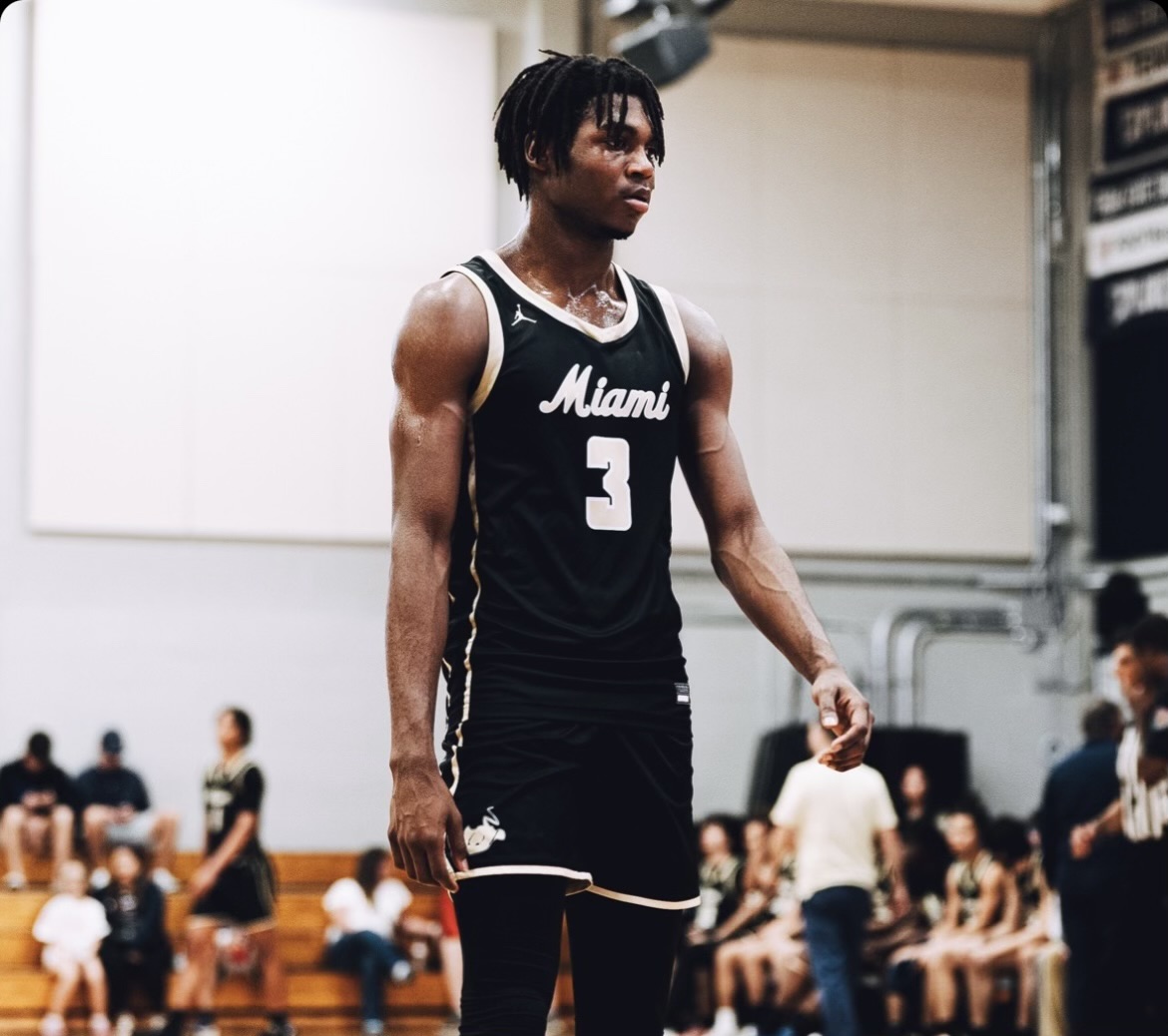Discipline or Abuse?

Source: https://www.mcgill.ca/newsroom/channels/news/different-types-child-abuse-similar-consequences-256068
May 6, 2022
Abuse can mean a lot of things, from being mentally, emotionally, sexually, and verbally abused. Being physically abused is usually the first thing people think about when they hear the word abuse. Physical abuse leaves a significant impact on people, and it stays with them forever, especially in a child.
A Fine Line
Who’s to decide what is considered abuse or what is considered discipline? There must be a red light when it comes to physical discipline. What’s considered too much? Moises Montenegro, a junior at Miami High, said he would draw the line at “excessive physical contact.”
Sophomore I.S. thinks that the line is crossed when the parent is hitting just to hit, not to discipline because “discipline is not the same as hitting.”
My mother, Jannina Roman, said that drawing blood, bruising, or leaving any kind of mark is when the line has been crossed. “Everything in moderation.”
My aunt, Jossette Bolton, said that when you “constantly choose physical discipline… if it’s your solution for everything your child does, then it’s abuse.”
Relationships Ruined?
After being hit by your parents you usually feel some sort of anger towards them. So, after getting hit almost every day, does the anger ever go away? For some, this anger stays with them, they don’t forgive their parents afterward, and they develop a sort of disdain towards them. Sophomore I.S. said she resents her parents a lot and “it was not a nice way to grow up.” She also mentioned how she would have a lot of anxiety as to what would happen to her when she did or said certain things.
English teacher Ms. Guerra said that she feared her parents growing up, but she doesn’t anymore. Her brother’s and dad’s relationship suffered tremendously because of it, and they did not speak for about 7 years. Ms. Guerra doesn’t see her parents any differently or dislike them, but her brother does. Her family is fractured because of the abuse, but she now feels comfortable enough to talk things out with them if they’re ever angry about something.
On the other hand, my father, Jose Martinez, who said he barely got hit, mentioned that he does believe in this type of discipline. He never feared his parents even though they would sometimes use physical discipline. He has a great relationship with his parents to this day. He said he would only hit his kids if it’s “needed to teach a lesson,” or if he “senses disrespect.”
Effectiveness
Parents like to excuse the hitting by saying that they’re teaching their kids something when, in reality, all they’re doing is instilling fear. An anonymous Miami High male said that his parents’ discipline worked, but he doesn’t “think it’s worth it to give your kid trauma just so they would listen to you.”
Meanwhile, my aunt Jossette Bolton said she doesn’t think physical discipline is effective for all children, “but I do think some children require different techniques, so I don’t frown upon it. It’s just not something my children require.”
In the article “Here’s what spanking does to kids. None of it is good, doctors say” published by NBC News, Dr. Robert Sege, said, “Within a few minutes, children are often back to their original behavior. It certainly doesn’t teach children self-regulation. Techniques such as time out and other effective forms of punishment, the goal is to teach the child to regulate herself, so that she will have the ability to control and manage her own behavior.” So why do parents continue to hit their kids when they can see that it’s not effective?
A Power Trip
Parents hit their children and disguise it as “discipline,” but why choose a physical punishment instead of something that works? Ms. Guerra said, “If you punish out of anger at what the child has done, you’re taking your anger out on that child, and there’s a power dynamic there that is never going to justify that action.”
Why would you hurt a child out of “discipline” when you wouldn’t do the same to an adult? When you’re an adult, you don’t get hit at your job when you mess up, so why would you do that to a kid?
These parents are teaching their children that “someone who loves you, can hurt you, can cause you to feel fear. You introduced fear to that child,” said Ms. Guerra. “As a parent, you’re that child’s provider and an example of how things should be.” However, when you hit them, it’s not doing any good for them or your relationship with them.
My aunt said that the few times she was hit, she felt as if she had “no power over who she became.” She also believes that “hitting is the parent showing their own frustration because they feel inadequate at the moment. It deals more with momentary feelings rather than the real issue of why it is the child acted out?”
Generational Trauma
Your parents were most likely raised being taught that physical discipline is right and effective. They probably got it worse than you do/did. As stated by the article “Generational Trauma and Breaking the Cycle,” published on the website NeuroHealth, adults who were raised in an abusive environment are more likely to start a relationship with an abusive spouse. Then, their children are witnesses or victims of this abuse themselves, causing a cycle. Another example of this vicious cycle is when a parent was hit and they really believe that this “discipline” worked, so they use it on their own children, and then their children use it on their own children. This cycle is not healthy or okay.
However, as the cycle continues it could get progressively better. An anonymous MHS parent said she got disciplined better than her mom was, because it “wasn’t as severe.”
Physical discipline is used a lot in Hispanic culture. It’s rare to see a Hispanic family that uses an alternative method. Hispanic parents make fun of any other parenting style and label it “ridiculous;” they take pride in their flawed methods. This poor discipline technique has been used for decades, but that does not make it okay.
Brendha Ballester, a freshman at Miami High said that adults expect their children to be mature but “resort to hitting their children instead of talking things out with them like actual mature people should.”
Alternatives
A lot of new parents are deciding to break this cycle and using other forms of discipline. Gentle parenting is getting more popular, and hitting children is being frowned upon more. Distracting the child and offering them a substitute toy, simply not allowing the child to be in a situation where you would have to intervene in the first place or, the “cry it out” method. This is a popular method, where you would just allow the child to cry until they calm down on their own.
If you, a family member, or a friend are being abused:
Call 1-800-962-2873 or visit https://www.myflfamilies.com/service-programs/abuse-hotline/





brydon • May 6, 2022 at 7:55 pm
Love it, shines light on a serious topic that needs to be talked about.